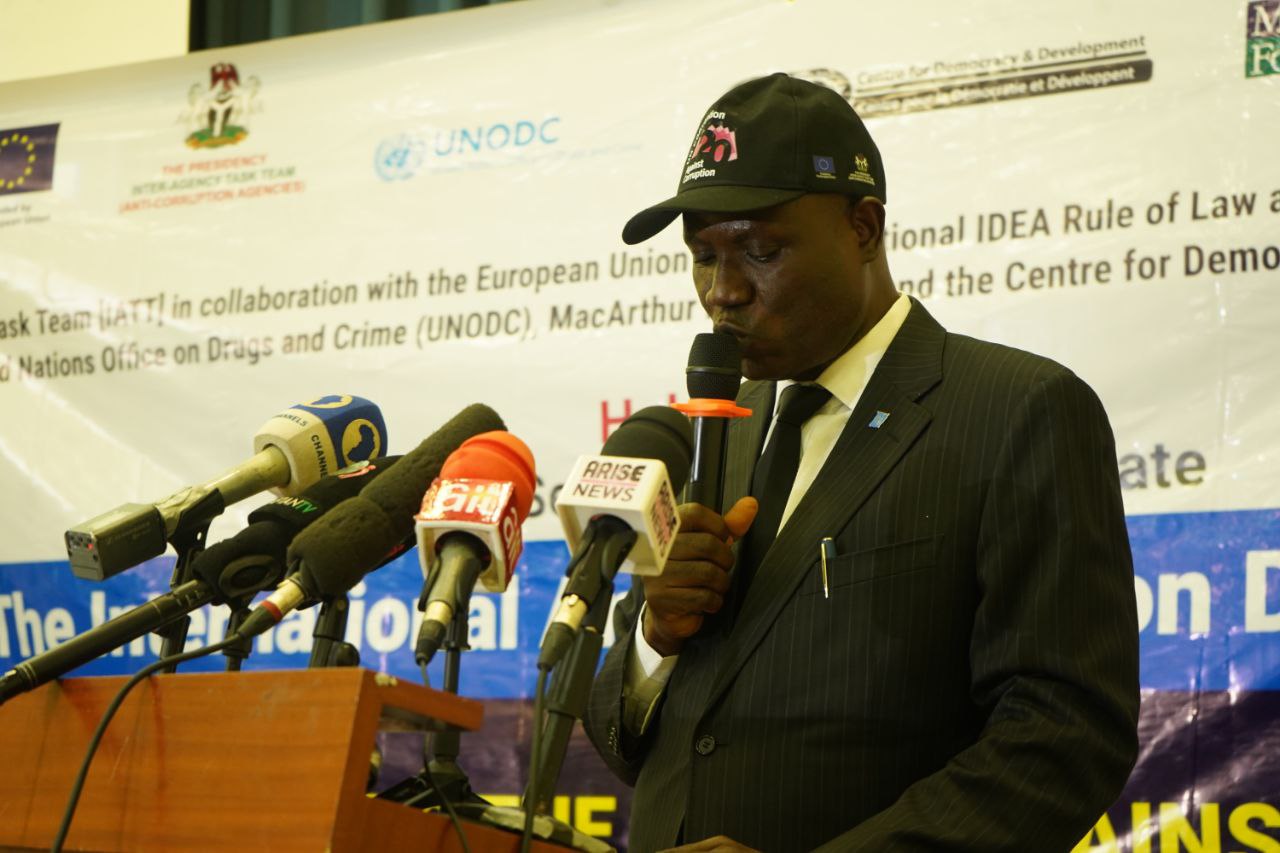As Nigeria joins the rest of the world to celebrate International Anti-Corruption Day, stakeholders from the public and private sectors as well as the civil society have called for a holistic review of the commitment to the fight against corruption.
At the event recently held in Abuja with the theme: “UNCAC AT 20: Uniting the World Against Corruption,” it was reiterated that the prevention of corruption requires a holistic framework and multisectoral approach.
Delivering a goodwill message, the Secretary to the Independent Corrupt Practices and Other Related Offences Commission (ICPC), Mr. Clifford Oparaodu, noted that the battle against corruption was not the sole responsibility of anti-graft agencies or government “but the collective responsibility of each and every one of us as citizens of this great country Nigeria and the continent.”
He also added that “ICPC on its part is poised to make the anti-corruption fight affect governance and the well-being of the generality of Nigerians and therefore aligns with the United Nations’ calls for a collective action with sense of responsibility.”
In his keynote address, the Attorney-General of the Federation and Minister of Justice, Lateef Fagbemi, SAN noted that with the adoption of the National Anti-Corruption Strategy (NACS) 2022-2026, the present administration was poised to see to its implementation through the strengthening of legal and institutional frameworks as well as the mainstreaming of anti-corruption principles in governance and service delivery both at the national, state and local government levels.
“President Bola Ahmed Tinubu, GCFR, is determined to strengthen the fight against corruption at all levels and ensure prudent utilization of resources for sustainable economic growth and development. The eight (8) presidential priorities of the present administration has a key priority in the Anti-Corruption Stance. To ensure effective deliverable, my office has been charged with critical performance indicators which will ensure percentage implementation of the National Anti-Corruption Strategy (NACS) and the coordination of mechanisms involved in the Anti-Corruption efforts.” he said.
Also, the Executive Secretary of the Nigeria Extractive Industries Transparency initiative (NEITI), Mr. Orji Ogbonnaya Orji stated that twenty (20) years after the UNCAC, significant improvements have been recorded, but in the oil and gas and mining sectors where the NEITI operates, corruption was still a major constraint.
“Twenty years after Nigeria adopted United Nations Convention Against Corruption (UNCAC), notable efforts have been made, no doubt. However, the latest corruption perception index, that put Nigeria 154 out of 180 countries, clearly shows that we are very, very far behind, and far from reaching our destination.”
Orji suggested that to effectively implement UNCAC ’s review mechanism, there was need to reassess the country’s commitment and approach to the fight against corruption.
The Country Representative of United Nations Office on Drugs and Crime (UNODC), Dr. Oliver Stolpe, who was represented by his Deputy, Danilo Gambiz commended Nigeria for staying true to the course of the UNCAC since its adoption twenty years ago.
He also urged major stakeholders sustaining the UN Convention in-country to build on the recent stock-taking exercise, which allows them to self-access the extent to which they are implementing the Convention.
“From this exercise, we see a lot of progress being made in the area of asset recovery, including the passing of the Proceeds of Crime Act and sponsoring at least five resolutions on asset recovery in the last 20 years. However, more effort is required in the corruption prevention. This is the first chapter. Another important point emerging is addressing gaps in transparency, integrity and accountability in governmental and non-governmental organizations.
“At the core of these values are the attitudes of citizens and their government to issues of corruption.
“In fostering a culture of integrity, transparency and accountability, citizens and the government must take action in establishing policies or frameworks and cultivating behavior through enforcement of established frameworks or policies that discourage corruption practices.” he advised.
The event witnessed two panel discussions as well as a school debate which was won by Government Day Secondary School, Dutse, Abuja.

